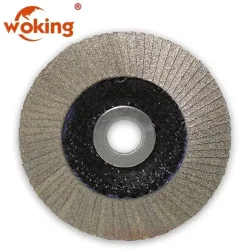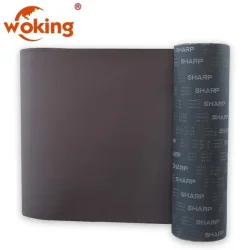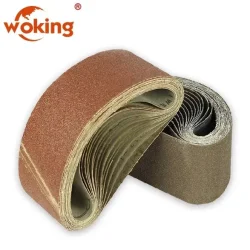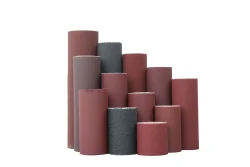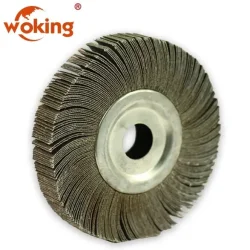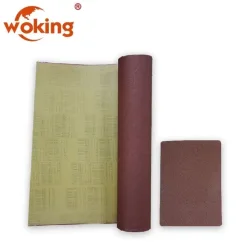2022-06-19
There are wide types of abrasives available, depending on what you're working on. Today we are going to talk about the types of abrasives that you should know about.
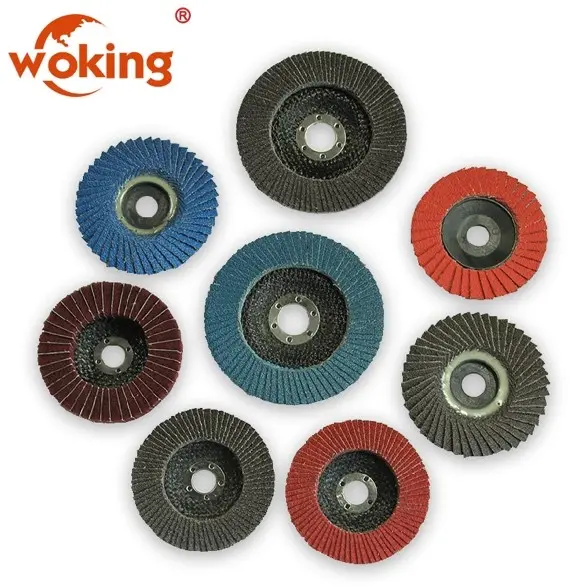
Today, I'd like to discuss the different types of abrasives and their characteristics of each. There are many different types of abrasive materials available for use in various industries on the face of the planet. I say "on the face" because there are many places where abrasives have yet to be implemented, but as you already know, there's as much as a whole lot out there.
Types of abrasives: Emery
When you're looking for a durable and cost-effective abrasive, you'll want to consider emery. Emery is a natural form of corundum—a crystal of aluminum oxide that has a hardness of 9 on the Mohs scale. It's available in several different forms, including sandpaper, grinding wheels, and polishing cloths. Emery is a model for general metalworking applications because it's inexpensive, strong enough to cut through the toughest metals, and safe for use on wood and plastic as well.
Emery can also be used for other industrial applications, such as polishing glass and marble surfaces. It's even used in jewelry manufacturing ways to give certain gemstones their distinctive shine. We recommend using emery when working with softer metals like aluminum or brass—it's less likely to cause scratches than other abrasives like sandpaper or steel wool (which are better suited to harder metals like stainless steel). Emery paper should never be confused with garnet paper; both are made from the same mineral, but garnet has been crushed into fine particles while emery remains rough-edged and sharpened by nature, making it more effective at removing material quickly than its cousin would be if manufactured artificially.
Types of abrasives: Ruby stone
The professional blog talks about types of abrasives: ruby stone. Ruby stone is one of the most popular abrasive materials used in different jewelry items. This gemstone is quite hard and has an appointed crystalline structure that makes it an ideal material for cutting and polishing other metals. These stones are widely used in the construction industry for making various tools and cutting machines. These stones are also widely used in different jewelry items such as watches, necklaces, bracelets, earrings, and others. The main advantage of using ruby stones in jewelry is that they do not break easily, unlike other precious stones like diamonds and rubies.
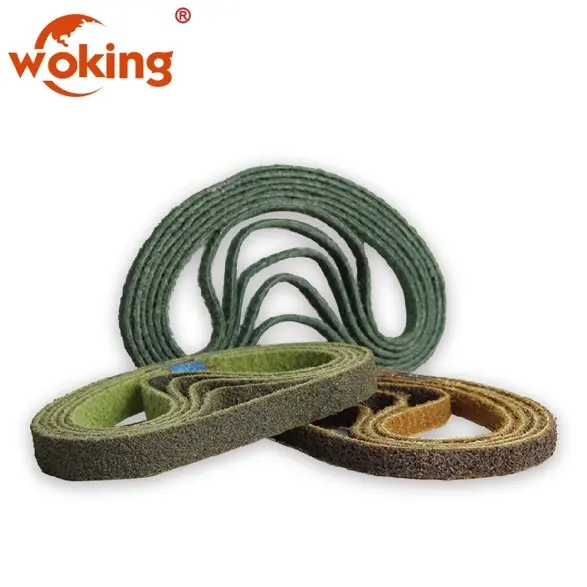
Types of abrasives: aluminum oxide
Aluminum oxide is an abrasive that can be used on metal, fiberglass, carbon steel, stainless steel, titanium, and many other surfaces. Aluminum oxide can come in several different forms, such as brown or white. Aluminum oxide is informed as a highly friable abrasive. When it fractures, it creates new cutting edges. This results in consistent performance throughout the life of the product. The emblematic life for aluminum oxide is 2-3 times that of zirconia alumina and boron carbide. Aluminum oxide is also more aggressive than zirconia alumina and boron carbide. It has a blocky shape, which helps to increase stock removal while maintaining a constant finish.
Types of abrasives: silicon carbide
Abrasives are used in a wide range of industries, including metalworking, automotive, aerospace, and more. The material can be made from a variety of different materials. Each type has the characteristics that make it suitable for certain applications.
Silicon carbide (SiC) is one of the most popular abrasives used in manufacturing today. It is used as an abrasive for sanding, grinding, and polishing. It also comes in a variety of different forms, including beads, plates, and discs.
Types of Silicon Carbide
The two main types of silicon carbide are fused and sintered:
Fused Silicon Carbide: Fused silicon carbide is constructed by heating quartz sand to a high temperature and adding boron nitride as a catalyst. This creates silicon carbide crystals that are then pressed into pellets or briquettes. These pellets are then fused to form larger pieces of material before being ground into smaller sizes for use in applications such as grinding wheels or sanding belts.
Sintered Silicon Carbide: Sintered silicon carbide is created by heating powdered quartz sand with boric acid at temperatures between 1,000 and 1,500 degrees Celsius (1,832-1,832).
Blog Conclusion
Abrasives are being used in so many different industries and wherever we find that there is a need to cut, grind, shine or finish a surface for any reason. The abrasives made available over the years have made it easier for workers in these industries to do their jobs. Foshan Ruiyan Abrasive Products Co., Ltd. was founded in 2003 as a professional manufacturer of silicon carbide sanding products in China. We have been producing abrasive products for more than 10 years, including silicon carbide paper, flap discs, sandpaper discs, and impregnated cloths for sanding and finishing wood and metal surfaces. So, you can go to our website and order the abrasive products you require for daily use.
